#daniel waterston
Explore tagged Tumblr posts
Note
Fisher King prompt: dark crescendoing to light. Daniel Waterson and his baggage come back into her now-married life; maybe by way of the autopsy table. A dark case comes across Mulder’s desk. You pick. A happy surprise at the end to bring them both out of it?
Thanks, lady.
It is the dead nurse that catches his attention. Two days back from his honeymoon, attaboys and filthy jokes and cigars and a stack of manila folders on his dust-rimed desk.
Pendrell whistles when he sees Mulder, makes a predictable playing-doctor joke. He leers as though it obscures the soulful puppy wetness of his face. As though he hasn’t noticed Dana at crime scenes before, the autumn bonfire of her hair. Her tourmaline eyes.
Mulder thumbs the band on his left ring finger, spins it a little in the cool morning light. Flips them all off with good-natured grouchiness as he makes his way to the elevator. He thinks it might be fun to be an old man, to listen to the slap of his bedroom slippers on the grocery store linoleum.
The air in his office smells like cardboard boxes, like ghosts of lo mein and forgotten pizza. Copier toner. Pencil shavings.
His wife says, “Honestly, Mulder,” and makes chicken sandwiches from dinner leftovers, makes him salads with salmon and almonds and avocados and says he needs to gain eight pounds. He’s taken to her demands like a stray cat adjusting to life indoors. He’s growing glossy and sleek, full of essential amino acids.
Full of life.
***
There is no congestion in any of the organs. No petechiae in her eyes, no blood clots in the fragile slices of brain. Lips, mouth, esophagus free of corrosion, not an aneurysm the size of a poppy seed. The bruises and claw marks on her gray throat are her own doing. There are over a dozen witnesses.
Her nails are clotted with her own crumpled skin.
Dana pokes her finger into the aorta, sniffs the dead, butcher-shop air of Ludovica’s mouth. She prods at the lungs and hunts for lesions and surfactant. The nurse’s stomach contains a half-digested bagel and tuna salad. The muscular walls are in the very pink of health. She has lungs like freshly chewed bubblegum.
Dana huffs a strand of hair off her lip. She does not want to call him.
***
“What killed her?” Mulder asks, around a mouthful leftover quiche. God it’s good. She caramelized the onions, used two semesters of organic chemistry on the pastry and can declaim on the Maillard Reaction in a voice fit for Showtime.
“I’m working on it,” his wife says, brisk. “Thus far it seems to be nothing, which is a bit of a problem, medically speaking.”
“How embarrassing,” Mulder says, hunting around for another chunk of broccoli. “To die of nothing. You talk to this Waterston chappie yet?
Silence.
“Dr. Scully?”
A sigh.
Mulder’s brow furrows. “Dana Katherine, what gives?”
She sighs again. “You remember that med school professor I told you about? Funny story…”
***
He gazes at her the way tourists gawp at the Mona Lisa; not with a particular appreciation, just a bit awed that they can check it off their bucket lists.
Twice, for Daniel. A certain chumminess. A hint of inside jokes and favorite restaurants and that-lovely-inn-we-stayed-at. Of possessiveness. Territoriality.
Mulder shakes his head, just a twitch. Just enough to clear Daniel’s smug carnal knowledge of his wife away. Mulder’s fucked people’s daughters as well. People’s wives. There was one at Oxford, Honora, her husband a full professor and he -
Mulder doesn’t say this. He doesn’t say anything as Daniel stares at his Rossetti wife, undoubtedly thinks about the determined twitch of her twenty-one year old ponytail and her scuffed Keds and her slipshod Navy brat graces and her body like Artemis bathing by moonlight.
But Daniel’s alone and Mulder isn’t.
Dana isn’t alone either because, against all reason and karma, she’s married him, married Fox Mulder, like it was an absolutely sane thing to do, and her family simply went along with it.
“Tell me what you saw,” says Mulder, with the gentle absolution of a priest. “No judgement here,” he lies. She was hardly more than a girl, she was an innocent, she trusted you, you fucking asshole, you predator, you-
Daniel looks at Dana. Looks down at his surgeon’s hands. No ring on any of his fingers.
Daniel closes his eyes and looks at nothing.
“We began a midline sternotomy, absolutely routine, Suddenly Ludovica - Nurse Giordano - grabbed her throat and said she couldn’t breathe. She…she screamed Diavola! Said there was sulfur, said it was mustard gas, but none of the rest of us smelled a damn thing. But she was thrashing on the floor of the OR and our patient was-“
He looks around then, catches Dana’s eye, shyness in his expression. Shyness in his fatherly face. Dana had looked up at it for approval, no doubt. In what she probably thought was passion. Maybe even love.
Dana nods encouragingly and Mulder feels it then, the weight of years. He understands in that moment that time really is the fourth dimension; that it has a hot, heavy plasticity into which you can sink. He understands the realness of an event horizon, that they are all being pulled towards the unfinished thing between Daniel and his wife, Ludovica Giordano’s corpse included.
His wife was a physics major, his wife rewrote Einstein with the ebullient narcissism of the young.
He understands that his wife and Daniel speak the same primal, arcane language of science. He is a lowly psychologist, the major you pick when you can’t get into dental school but still want to Help Others.
Kepler’s Third Law tells us that intensity equals the inverse of the square of the distance from the source.
And he’s brought Daniel back into her orbit.
***
“I can’t believe you fucked him,” Mulder gasps into her tender seashell ear. An inch from her extraordinary brain.
“I was a child,” she hisses back. “Essentially. Don’t stop, Christ, don’t - I was a child, I-“
She was, she was, she was Eos newly born, she was radiant and young, she was Persephone to Daniel’s Hades, she was fresh milk at Ostara, and a sunrise over the Atlantic.
“Did you love him?”
Her thighs so taut and pale and quivering. Her wedding dress, her misty veil. Her palimpsest skin, on which he can rewrite himself.
“I thought I did but but it wasn’t this, it was never this, it was never you, I-“
Mulder comes in her, groaning, feels the tiniest sting of shame at how good it is to reclaim her from this other man.
***
“Dana,” Daniel says, heavy-tongued for Mulder’s consecrated, Catholic wife. He is hard; he shifts in the uncomfortable chair.
Mulder knows and Dana knows and the air is thick with this knowledge but strangely not unpleasant. The air is July just before a thunderstorm. The air is dense and verging. Primal, fecund, cataclysmic.
Hot.
Green.
Alive.
The air tastes like a 9-volt battery. He wants to put a baby into his wife.
“You were there,” Mulder says, his buckskin hands woven and laced. “What did you see?”
Daniel looks at Dana, Daniel is here for Dana, because he believes she is cold and lonely and alone in the way of the outer planets. He still thinks only he can warm her.
(He doesn’t know, Daniel, not really, that there is a solid core beneath the icy mist.)
She’s too distant and abstruse and Daniel doesn’t know.
***
Daniel smirks at Mulder, this old man who felt briefly alive in the hot juncture of his wife’s thighs; smirks as though he’s done anything real at all. They view the human heart so differently, he and Daniel.
Dana - Dr. Scully - rests her palms against her sharp tweed knee. She only wants to know what stops any human heart from beating. What shuts the brain down, from prefrontal cortex in a cascade to the lowly lizard stem.
“What did you see, Daniel?” She is poised and tensed. She is waiting. She is untouchable.
Mulder - Fox - is disarmed by the chill of her haughty face. Her Plutonian eyes are so very, very cold . So very, very far.
Ice could never be so warm.
***
“‘Maggie,” he breathes, into her amber light. Into her aura, in her husband’s office, after Mulder went out for their lunch order.
“No,” Dana says. “I don’t care. Tell me about the nurse.”
Daniel huffs. “I don’t know, it was nothing, Dana, Maggie said-“
“I don’t care,” Dana says, crisp. “I don’t care about your daughter. You certainly didn’t, when you brought me to your bed.
Daniel is appalled. “Dana, you were-“
“I know what I was,” she replies. “I knew what I was doing and I don’t regret it, not really. But I didn’t understand what you were, not then. And you should regret me, Daniel.”
He looks at her, his brows drawn.
He looks away, back through the years. Dana, all sharpened Ticonderogas and her mouth an unplucked apricot. Skin like fresh-churned butter.
“She was…she was gasping,” he says to the wall of of clippings. To the Flatwoods Monster and wendigos and little lost girls and stills from the Zapruder Footage. “She was clawing at her throat, she…diavola.”
Diavola.
Daniel looks at the ceiling. “She clawed her throat to ribbons,” he says. “She said our patient was full of demons, she said…” He shakes his head and looks at Dana again.
Dana knows. Dana has seen. Has read and wondered and wondered, considered the Gerasene demoniac in the synoptic gospels. Tooms at her belly on the chilly tile of her bathroom…
It will do no good. Whatever her husband says, the truth is not always a panacea. The patient has lived and Ludovica has died and all anyone wants is official paper with Dana’s name at the bottom.
A reckoning, now. A choice.
“Anaphylaxis?” Dana murmurs, in the perfume and cashmere of a different rich man’s wife. She puts a little throatiness in her voice now, like she did after Dr. Waterston spoke to her in private about Starling’s Law. She can give him this. She can give Ludovica’s family this.
Diavola.
Mulder is right, Mulder is almost always right. But Mulder is right in his own time and Ludovica’s family needs her home.
Daniel catches the lifeline she throws, grateful.
Humbled.
Daniel, when his gaze returns, is a bit smaller in her eyes. “Yes,” he says. “It must have been.”
***
They’re eating dinner at the Peruvian chicken place on the corner because Dana is hollow and Mulder has moderately weaponized his own culinary incompetence.
“Ansel died today,” she says, poking at her rice.
Mulder nearly chokes on a mouthful of black beans. “What?!”
“Died. Massive coronary at his desk. Dead within seconds.”
Mulder gapes. Ansel Jordan, Chief Medical Examiner in DC; the alpha and omega of the unexpectedly dead in the District. “He ran marathons.”
Dana nods into the middle distance. “He ran marathons. He had a treadmill in his office. He was 57 and he was my boss and I split his chest apart with a Stryker before his body had even cooled this morning. My god, I forgot what warm tissue feels like.”
She looks up with her wide, delphinium eyes. “They asked me, Mulder.”
They asked? He is appalled. “They asked you to autopsy him? That’s really fu-“
She shakes her head. “No, nobody asked me that. No one would ever. I volunteered, it was the right thing to do, for my colleagues. For Ansel. We were hardly close but I had tremendous respect for the man.”
Ansel was a runner. He ate well and drank in moderation. He cared for his body like a classic car; starting to slow down but with lots of miles left.
The human body is strange and unpredictable.
“Are you okay?” How do you cut open a man you know? He cannot believe she didn’t call this morning but also of course she didn’t call this morning. She is an eternal riddle, a beautiful enigma.
“I’m surprisingly fine,” she says. “I mean, it’s horrible and pointless and tragic. But the process of an autopsy…it soothed me. I knew what to do and there was a…a checklist.”
He smiles, soft. “You’re always a doctor first.”
Dana shrugs, fluid and dismissive. “I guess.”
He realizes then, awed. Adoring. “They want you to… to step in, to be Chief. Dana, that’s incredible, that’s a huge honor. I’m sorry it’s come at the cost of Ansel, but Christ. It’s tremendous.”
He will never achieve this in his own career and is delighted that she can.
Dana nods slowly, a blush creeping up her fine, pale cheeks. She spears a plantain and examines it on the end of her fork. “It’s obviously not a formal offer yet, my god, he’s only just been released to the family, but yes. It’s tremendous.” She bites into the plantain.
He thinks back to that feeling of wanting a baby, wanting her to have it, and knows that the new Chief Medical Examiner of DC will have other pressures, other concerns.
She’s expressed interest in babies in a vague sort of way, but doesn’t want them like he does. Dana grew up with hand-me-downs and home haircuts and spaghetti the last week of every month. She knows that babies grow into scraped-kneed children who need lunch money and trombones and French tutors and football uniforms.
He’s rich enough for it all, for night nurses and nannies, but he knows her body is not a rental property. He wants a baby, he does, but he also doesn’t care if it means this for her. He doesn’t care if her star can rise.
“I love you,” he says, raising his plastic cup of horchata. “And I’m so goddamn sorry about Ansel.”
She lifts hers back, his wife, her old-master face and her slapdash smile. “Thank you,” she says, still pained. “And slaínte.”
“L’chaim,” he replies. To life.
60 notes
·
View notes
Text
Idk yall Moon Song by Phoebe Bridgers is sounding slightly Dana Kathrine Scully coded…
#like her relationship with men in the past#that one line#‘you are sick and you’re married and you might be dying’#HMMM#NOW WHO DOES THAG SOUND LIKE TO YOUUU#cough cough Scully and Daniel cough cough#could be reaching here#but you can’t deny me that line#like cmon#the x files#txf#x files#dana scully#daniel waterston#pheobe bridgers#moon song#song lyrics
9 notes
·
View notes
Text
All Eyes Lead to the Truth | all things (7x17)

Daniel watches Maggie storm out of his hospital room, but it’s only Dana he is truly focused on. And now, they’re alone.
“She's ... been through some difficult times and she's very angry,” he tells Dana as she stands with her hands on her hips.
“How did she even find out?”
Ah, the elephant in the room. The thing they’d dodged since he laid eyes on her after so many years. It hangs around them like a shroud– dark, erotic. Unspoken.
“There are things you don't know,” Daniel says. “Things I'm not proud of.”
Dana’s eyes soften as she takes a few steps toward him. “What things?”
He shifts his gaze to the ceiling, not wanting to look at her when he admits what had happened. “I screwed up, Dana. Things got bad at home after…”
When he looks back, he sees her rolling the doctor’s stool to his bedside so she can sit. She looks uncomfortable, which was never his intent, even if it was inevitable considering the happenstance of this moment.
“Bad how?” she asks, her eyes skittish.
“I haven't been completely honest with you.” He keeps his own gaze from her as well in an attempt not to be overcome by emotion. “It was hard for me... when you walked away. Shut down from my family and needless to say, it was very difficult for Barbara.”
“You divorced.”
“Only after an interminable period of discomfort for us both.”
He still hasn’t looked at her. He can’t. He’s ashamed. Ashamed that he had driven her away and that the broken heart he was left with had done the same to his family.
“Where did you go?”
Their eyes shift away and back as he tells her. “Here. Washington.”
“When?” she asks, this time searching his eyes for the truth.
“Almost ten years ago.”
“Daniel…” she says, and it evokes in him memories of the times she’d said it in the past. Better times. There’s emotion in her voice when she speaks again. “You didn't move here for me?”
His voice is a whisper. “I didn't mean for it to happen this way, of course.”
Dana’s face changes. Her eyebrows furrow and there’s the hint of a smile, though there is no happiness behind it. She exhales something close to a laugh. “Oh, God.”
They look at each other– searching, trying to understand and be understood– before she closes her eyes to him. Her tongue trails across her lips, the way he remembers from a different hospital, a different lifetime.
When her eyes open, they are glassy. She shakes her head, gathering her words. “You've come at such a strange time.”
He wants to comfort her. He never wanted anything other than to take care of her. “I know, I know. You… you have a life.”
She shakes her head, eyes fixed on the ceiling. “I don't know what I have.”
He can hear her struggle to hold in her tears and he feels no different, lying there in this bed, hooked to wires and tubes, still full of love for a woman he’d thought he would never see again.
“I mean…” She laughs a little as she looks anywhere but him. “Your X-rays were in the wrong envelope. I never would have even known you were here if it wasn't for a mix-up.” Her lips pull up into a surprised smile. “It's just…”
“What do you want, Dana?”
“I want everything I should want at this time of my life,” she says and he watches tears drip down her cheeks. “Maybe I want the life I didn't choose.”
He holds out his hand, which she regards with uncertainty before finally intertwining her fingers with his. She leans forward and lies her head on his chest. Daniel finally takes a breath and closes his eyes.
***
He was married with a daughter. He was in no way unattached. He was far too many years her senior. He was well regarded in his profession. He’d seen his colleagues with their assistants and their interns and their students, and he was well aware that he had reached the age of becoming a stereotype– the midlife crisis manifesting in the desire for someone new, someone young.
They were valid reasons. Reasons why some might say what he was planning was a terrible idea. But none of that mattered to him, because Dana was leaving for Washinton, and he couldn’t let that happen.
Because the truth was, he was deeply– desperately– in love with her.
It was her intelligence and curiosity that had drawn him in. She made him remember why he’d become a doctor. She looked up to him, like he alone held all the secrets of medicine. Like together they could save every patient.
He’d thought it was a crush– brought on by her youth and passion to a field that he’d dedicated his life to– but it was more than that. It had always been more than that. Even before things changed, before they’d kissed, before he’d touched her. It was in her eyes. One look from Dana, and Daniel felt fortified, strong enough to go on with his life. Strong enough to face anything.
He couldn’t let her go. He needed her, and if she loved him as much as he hoped, she would realize that medicine– and with him– was where she belonged.
His fingers played on the small square box in the pocket of his lab coat. So much would need to change before they could commit to each other, but as he watched her walk down the hall to where he stood, he hoped she would understand. That she would stand by him as he worked things out.
He hoped that she would see that what he was asking, the future he had in sight, was a life they could choose together.
Read the rest of All Eyes Lead to the Truth on Archive of Our Own!
@fridaysat9
#all eyes lead to the truth#x files fanfic#x files#the x files#fanfic#mulder#scully#msr#season seven#s7#7x17#all things#daniel waterston
1 note
·
View note
Note
Even though I am personally not religious, one of my favorite character traits of Scully was her faith despite being a hard nosed scientist. If you had to define her religious beliefs how would you? Would you consider her a hard core catholic, a catholic in name only or something else?
I look forward to a 1000 word prompt XD
The Journey of Scully's Faith, in Brief

Oh, yeah, Scully and her religion.
*cracks knuckles*
Faith was Scully's albatross until all things, a tug-of-war between her initial belief and secondary rationalization.
ATHEISM, AGNOSTICISM, AND THE FEAR OF HER BELIEFS

During the first half of the 90s, religion represented, to Scully, everything she was afraid to believe in: her father's ghost mouthing The Lord's Prayer, her Catholic mother's psychic dreams, her partner's and sister's convictions running concurrent with her struggle against faith.
She began Season 1 as an atheist-- more so than Mulder, perhaps-- using the rigidity of science to explain her world. Even though she wore a cross around her neck, Mulder didn't assume Scully was religious; and Maggie backed up that assumption in S2's Ascension, explaining, "I gave" [Scully's cross] "to her for her birthday." The religious iconography, then, was a memento of Scully's mother, not of her faith... which becomes particularly telling during her Season 3 and 4 struggles.
Why?
CHILDLIKE FAITH

Scully had a proclivity to believe in the supernatural, the unnatural, and the paranormal before, as she states in Quagmire, "I grew up and became a scientist." Science, then, is a shield against the unexplained: in other words, Scully fears what she can't quantify, so turns to science to deny her problem's existence. "Mulder, it doesn't matter," she insists when he prods about the cause of her cancer; "Mulder what difference would it make?" she rebuts whenever he wanders too far into the realm of hypothesis.
Beyond the Sea and Revelations hit upon the same raw nerve. Luther Lee Boggs preyed upon her repressed doubts, calling her a liar when she denied she believes and telling her that all liars "go to hell." Kevin Kryder was saved only through her acceptance, shall we say, of God's hand working through her. In both cases, religious belief-- be it her father's ghost mouthing The Lord's Prayer or a sweet-smelling saint her partner can't detect-- terrifies her.
Why would it terrify her? Because religion isolated her.
CONFUSION AND ITS ISOLATION

We know Scully has attachment issues. We see them explored in A Christmas Carol when she poured her heart out to the social worker-- admitting she kept her heart largely unattached for fear of losing yet another person in her life-- but we know Scully isn't a detached person, either. We know that Scully's greatest fear was being betrayed by Mulder. That was explored in Wetwired, when she collapsed in her mother's arms, confused and sick at heart. We know that Scully grew more and more isolated in her partnership with Mulder; but she adapted to and respected that isolation after years of professional betrayal.
In regard to religion, why would Scully feel isolated? The Scullys are a religious family: her mother dangled reminders in her life with cross necklaces and priest visits, her father prayed as his soul departed, and Bill buried her daughter in his local church.
Because religion, Scully believed, isolates her from herself.
When Scully changed her course from medical school to the FBI, her parents heavily disapproved. That disapproval heavily affected her, even if Melissa helped her work past her hang-ups, even if Scully chose to reframe her transfer as "an act of rebellion." In truth, Scully found "other fathers" to hitch her wagon to, "rebelling" only when she spotted another patch of grass that promised greener pastures. The FBI patted Scully on the head and encouraged her to sign up (pre-Pilot); Mulder patted her on the head and encouraged her to stick around (Squeeze), Ed Jerse patted her on the head and encouraged her to take a walk on the wild side (Never Again), and Daniel Waterston patted her on the head and encouraged her to come back to him (all things.) Every decision that drew Scully away from an old belief was caused by a single-minded focus on one aspect of herself: her parents' pride and joy as a doctor, Daniel Waterston's pride and joy as his med student, the FBI's pride and joy as a field agent, Mulder's pride and joy as his partner, Ed's pride and joy as his salvation. And in each case, Scully grew isolated and paranoid because she lost touch with herself as a whole; and usually fled (if temporarily) to what she considered a 'freer' freedom.
How does this apply to religion? As a child, Scully was a good little Catholic girl who smiled at her mother's cross gift; but was also a bad little Catholic girl that smoked her mother's cigarettes for attention. In medical school, Scully was a good little med student who preened under her teacher's adoration; but was also a "bad" little Catholic woman who "grew up and became a scientist." Before recruitment, Scully was a good little scientist who fled from Daniel Waterston's deception; but was a "bad" little lapsed Catholic that (unintentionally) broke up a home. In Quantico, she was a good little field agent who learned all her lessons; but was also a "bad" little by-the-books student who openly dated her Academy instructor. And she was a good little partner who helped Mulder investigate impossible cases; but was also a "bad" little scientist for "holding" him "back."
In short, Scully hadn't allowed herself to fully accept the dichotomous nature of humanity. She must either be a good little Catholic girl or be someone who wants to explore her wild side. Until Revelations, she believed one must believe in God or science; and science gave her clearer answers that squelched her anxieties.
But then, Beyond the Sea, One Breath, and Revelations happened. Scully was unable to articulate or fully understand what her experience "beyond" had been in One Breath, only that it wasn't something to fear. It forced her to brush up against sentiments lingering from Beyond the Sea, to begin to admit there was a simmering belief she wasn't ready to acknowledge.
Revelations in particular tossed Scully from agnosticism back to belief-- and, again, she feared that belief. "Afraid that God is speaking; but that no one's listening" was a distancing tactic she acknowledged in Irresistible, a way to separate from the emotions broiling uncontrollably below the surface. But it also revealed how effortlessly Scully slipped back into a belief in God-- and that she equated that belief with missed cues and punishment.
Why did Scully think religion is tied with punishment, and how did that isolate her from her other potential believers?
MOTHER MAGGIE

Maggie is the key.
As discussed above, Scully strove for acceptance from her parents or from "other fathers"; and that played an important role in her journey towards personal growth. However, Captain Scully was but one-half of the picture. Scully's father served as the cattle prod for professional approval-- he modeled complete focus on climbing rank and keeping emotional burdens out from plain sight-- while her mother served as the emotional and religious one.
Maggie was the one person she could "always trust" and truly felt safe with in Wetwired. It was her mother she turned to for reassurance in Beyond the Sea, it was her mother's sins she smoked on the porch, it was her mother's gift she continued to wear when science dominated her beliefs. But Maggie has never been particularly stringent herself in her religion-- smoking cigarettes (during a time period when everyone did, but the point remains), believing in supernatural dreams, inviting the unbeliever "Fox" to mourn with the family, embracing her son's successful IVF baby in A Christmas Carol, and celebrating her daughter's out-of-wedlock baby in Essence.
It's what Margaret Scully represented, not Maggie herself, that Scully feared: unquestioning, childlike faith.
Unfortunately, we are never given closure to the dynamic Maggie provided. Other than a brief appearance in S8's Essence-- Scully's unruffled independence and Maggie's confidence in her daughter's confidence-- we're never shown that final conclusion. Alas.
A QUESTIONER AT HEART

Again, Scully couldn't reconcile the dichotomy of human nature with her (flawed) perception of religious "good and evil." Good people who do wrong, she presumed, have faltered and must repent. By that metric, evil people who do right do it for the wrong reasons. Moreover, Scully viewed a faith in God through one lens; and thought that if one did not completely believe in everything they didn't understand-- childlike faith-- then God was "speaking to them; but that no one's listening." That she wasn't listening. And what happens to those that know better but aren't listening? They are punished, because they are evil.
Scully is a questioner at heart; and Scully came to believe that questioning her beliefs, that failing to believe in things she couldn't understand, was tantamount to disbelieving in God. That's why her religious episodes can be difficult to rewatch: when facing an Almighty God, Scully cowered into complete, blind obedience-- "Perhaps that's what faith is"-- before casting off those shackles and fleeing back to denial and avoidance. But she couldn't shirk her belief, deep down, no matter her rationalizations.
A RETURN TO BELIEF, AND LIMBO

Post Revelations, Scully left the matter largely alone, resolving to find answers to her own questions "because of my own reasons" in Memento Mori-- a courageous step for someone who usually put her own needs second.
However, the doomed inevitability of Elegy-- another agency-robbing experience Scully couldn't explain-- set her back; and she continued dodging both her mother's priest and her partner's complicated questions in Gethsemane. Scully would feel like a coward if she ran to God for strength after her absence, but she would also feel like a heretic if she questioned the nature of God's existence.
Maggie became crucial to the cancer arc narrative: it was she who kept trying to reach her daughter, to show her that God wasn't taking account of what she had or hadn't done, what she did or didn't fully believe. Scully finally cracked in Redux II, begging her mother to explain why she still clings to God but denies him-- part of her inability to understand and quantify that dichotomy-- but Maggie didn't understand what Scully was talking about, and tried to soothe her, instead. Scully ended up clinging to Maggie, clinging to Mulder, clinging to the priest before she clung to God, viewing even Mulder as a truer believer than herself.
Season 5, Fight the Future, and Season 6 left Scully in limbo. (A Christmas Carol and Emily were about her daughter and the supernatural, not her faith or belief in God.)
The series didn't return to this topic until Biogenesis, The Sixth Extinction, and Amor Fati, a three-parter that focused on the possibility of aliens creating Earth (or having a hand in its creation.) This changed the wide interpretation of her religious texts and tossed Scully back into fearful questions and self-doubt. She cried in Amor Fati because she "doesn't know what to believe or who to trust"-- a verbal slip back into that feeling of isolation that drove her from religion in the first place. (Diana Fowley was formerly evil, but she died saving Mulder. Did that make her a good person who did wrong, or an evil person who did something right?) Mulder, transformed from his own experience, gave her courage and became her touchstone, regardless.
The answer Amor Fati underlined is that Scully had yet to believe in redemption: one could repent, she thought, but it wouldn't change who they were as a person. That thinking formed the cornerstone of her "good or evil" foundation and separated her from the capability to falter but not to fail-- to "sin" but to be "redeemed."
UNANSWERED QUESTIONS

Season 7 sets into motion the culmination of her religious journey: Amor Fati (as we already discussed), Orison, and all things.
Orison would have been the perfect followup to Revelations: another demon, another series of supernatural signs that only Scully can understand. However, this time she would fail to put the pieces together, and resort to an action against God's will that put into question the goodness of her soul. Problems with Orison (that it obliterated Irresistible's message, that its side plots cluttered an already cluttered episode, that Pfaster's "affect" on victims didn't match the reactions Scully experienced) aside, the episode didn't give the audience enough information to explain why Scully believed it was the Devil, not PTSD or a trauma reaction, that forced her hand. However, that was Orison's conclusion.
This, then, set Scully in motion to either follow a path of dark self-doubt or forge a new path of enlightenment. Or both.
We know she took the latter (all things) route, but another episode's potential was wasted in the journey from question to conclusion: En Ami. A road trip with the "the Devil in the flesh" would have been the perfect opportunity for Scully to try to prove the depths of her own goodness: putting her life at risk to obtain the cure for all disease. Scientific altruism and religious redemption combined. It would also prove how well CSM knew her, inside and out: using that lure to bait her away from Mulder (and, hopefully, to his own side.) En Ami could easily have discovered the lengths Scully would go to prove herself and the depths CSM's depravity and justification could sink to. Instead, it became a study in how little CSM understood his unknowing captive, and how little the writers understood why or when Scully chose to leap when told "Jump!"
Regardless, we arrive at all things.
ALL THINGS AND PEACE

all things was about enlightenment and self-love (for Daniel Waterston and his daughter-- also curiously named Maggie-- as well): Scully decides what she wants for her life, which voice she wants to hear. It's also the episode where God spoke back.
all things was a bit of a mixed message, especially considering Scully chose to remain Catholic ("my prayers were answered" in Season 8, lighting the church candles in Season 11, etc.) Gillian's episode had clear Buddhist leanings-- the god of "all things", i.e. the god in all things. God wasn't an active force so much as a peace of mind with the right choice (that choice being Mulder.) But it worked, too-- the ending, especially (which was written with the help of Chris Carter, actually. We'll give him a point for this one.) "Mm, I didn't say 'God spoke back'," Scully corrected, which illustrated that she, at last, straddled the dichotomy of her beliefs: a God that will lead but not directly speak. A God whose signs she chose to follow, not one who punished her if she went another way. "Life's just a path", Melissa told her before she ever stepped foot in the FBI (canonically after the Daniel Waterston debacle we return to in all things); and that message wound back around and stuck, seven plus years later.
But why did all things break Scully's fear of isolation through her beliefs (or religion, at large?) Her flawed perception of her mother's God was reworked, with Mulder as Maggie Scully's stand-in: God became a god of "all things", an entity that not only allowed her to make her own choices, ask her own questions, and harbor her own doubts, but also gave her space to decide and time to return.
That reframing of God then helped her to reframe humanity. Mulder came back from a wasted weekend trip to England, empty-handed; yet she simply guided him home, made him tea, and contentedly listened to him ramble about theories she might not fully believe. Scully no longer felt the need to combat his beliefs or justify her own: she knew, now, what she believed, and that was enough. (As an aside, The Unnatural and all things both end on the same note-- Mulder coming to an epiphany and long-windedly spelling it out until he realizes Scully already knows. Interesting.)
CONCLUSION

And thus, we have concluded Scully's journey of faith.
Any further point canon tried to make was simply a retread of better, more complicated resolutions.
Thanks for reading~
Enjoy!
#asks#b0oker18#The Journey of Scully's Faith in Brief#mine#(I doubled your word count to 2.5k. XDD)#Scully#religion#Maggie Scully#S1#Beyond the Sea#S2#One Breath#S3#Revelations#S4#Memento Mori#Gethsemane#S5#Redux II#faith#S7#Amor Fati#Orison#all things#Mulder#Captain Scully#Never Again#Ed Jerse#Daniel Waterston#xf meta
61 notes
·
View notes
Text












LOGAN LUCKY (2017)
"What do you make of all this Logan Curse stuff?"
@pscentral event 33: Underrated TV & Film
#logan lucky#channing tatum#adam driver#riley keough#daniel craig#jack quaid#brian gleeson#filmedit#film gifs#2010s movies#sebastian stan#one of the best movies you've never seen#underrated movies#my gifs#katherine waterston
93 notes
·
View notes
Text














67 notes
·
View notes
Text
i giggle everytime i see their names in the opening credits (i need serious psychological help)
#i-cant-think-of-anything-to-say thinks of something to say#dead boy detectives#dbda#dps#dead poets society#shadow and bone netflix#spn#supernatural#jared padalecki#jensen ackles#george rexstrew#jayden revri#ethan hawke#robert sean leonard#gale hansen#josh charles#dylan kussman#allelon ruggiero#james waterston#freddy carter#kit young#jack wolfe#amita suman#calahan skogman#danielle galligan
21 notes
·
View notes
Text
Just started watching The Agency for Michael Fassbender and he has a scene where his character Martian hugs his collegue Naomi and I was like "Wait...Wait I know her..this smile..is this Daniels??" AND IT IS DANIELS!! Seeing David/Walter and Daniels in another universe, hugging, made me happy The series also made me cry in the first 30 minutes because of the interaction between Martian and his daughter, hitting right into my Magneto and David feels :')

24 notes
·
View notes
Text
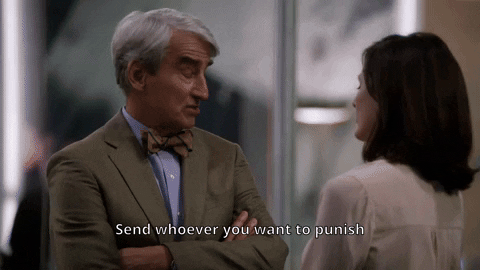
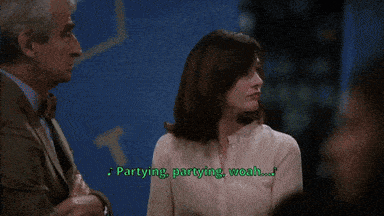
#the newsroom#charlie skinner#will mcavoy#mackenzie mchale#newsroom#miis#jeff daniels#emily mortimer#sam waterston#2x01
81 notes
·
View notes
Text







The Newsroom (2012-2014)
#tv#thenewsroom#службановостей#Jeff Daniels#Emily Mortimer#John Gallagher Jr.#Alison Pill#Thomas Sadoski#Dev Patel#Olivia Munn#Sam Waterston
21 notes
·
View notes
Text


Daniels and Walter plushies, I love these two SO much 🖤
So uh yeah, Alien Covenant.
It's not a masterpiece unfortunately, it had good potential, it's visually beautiful but too many ideas not exploited enough.
I would have liked to explore more of the universe that Prometheus had set up...
It's a good thing David's here, but I'm still angry at the guy who came up with the idea of killing Shaw off-screen.
#alien covenant#alien#prometheus#walter one#walter alien#michael fassbender#katherine waterston#waltiels#daniels alien#katherine daniels#drawing#illustration#my art#fan art
12 notes
·
View notes
Note
155 words - Phoebe
“Did you love Phoebe,” Scully asks in the baking sun of New Braunfels. They’re eating paczi, her hair cropped and sleek as Marion Davies.
He chokes. “What made you think of Phoebe?”
She shrugs. “Daniel. Mistakes of youth.”
Mulder chews. “Were you really going to marry him?”
“I asked first.” Her smile is the darkest, reddest rose.
“I loved what she made me feel,” Mulder says, ruminating. “I love that she got me to fuck her in a graveyard.”
Scully laughs. “I’m Catholic,” she muses into cherry-cheesecake filling. “I understand.”
Mulder is aroused. He is appalled, entranced, by the thought of her with Daniel Waterston. He thinks of her ponytail, freckles like cinnamon on coffee cake. Earnest.
He pulls another quarter from her ear.
“Tada!”
Phoebe, young and unsure.
Scully, 35 - breathtaking and confident, bites her lip. “Ohhhh, Fox,” she coos.
He is so hard.
He prays that Phoebe, somewhere, is happy. He’s so alive.
52 notes
·
View notes
Text


78 notes
·
View notes
Text
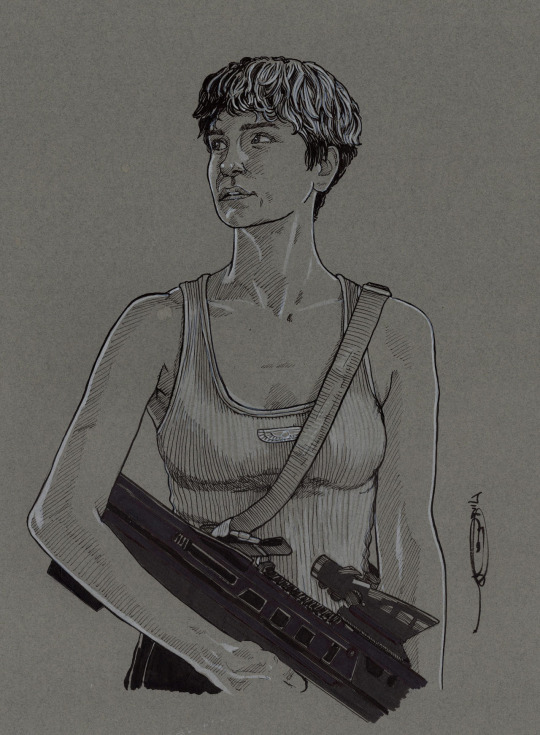
Daniels by Jerantino
#Katherine daniels#alien covenant#katherine waterston#alien: covenant#art#alien#artwork#Jerantino#aliens#Katherine Danny daniels#Kathrine ‘Danny’ daniels#alien franchise
27 notes
·
View notes
Text
Next Goal Wins is a David 8 AU
The Agency is a Walter AU
There I said it
#watching the agency and this is all im thinking of#he does sound a bit like walter in it#it's even got daniels!!!#100% confirmed walter au#the full first episode is on youtube#michael fassbender#katherine waterston#the agency#next goal wins#david 8#walter 1#dalter#alien prometheus#alien covenant#jeffrey wright#alien franchise#taika waititi#fassy
7 notes
·
View notes
Text
2024 TV Season Analysis – Organized Crime Tops the Franchise, Law & Order Better, SVU Needs an Overhaul
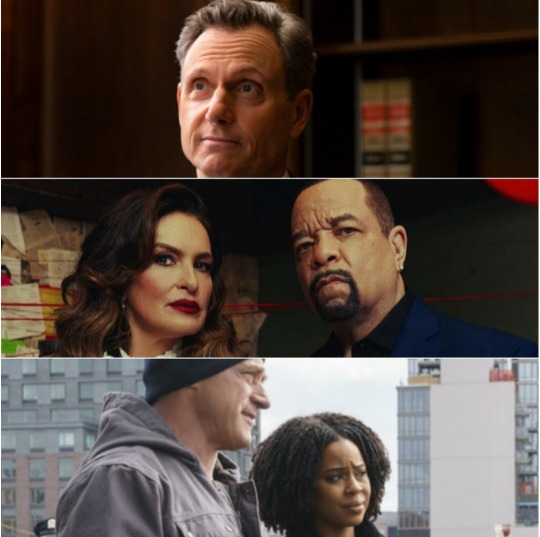
The 2023-24 TV season has been a truncated TV season of 13 episodes, due the ongoing WGA/SAG-AFTRA strikes that happened last year. A lot of scripted TV was back burned until the strikes ended. TV writers struck their deal first and were back to work promptly, long before actors/actresses, this should have given time to plan out their already short season. Production crunched for 13 episodes to be shot between late November until this coming week, where SVU and mother ship reboot will be wrapping up shooting their finale episodes.
But where does this season grade in its entirety? I’m going to summarize – as much as I can - my views on where the franchise stands for this season from best to worst. Click below to read.
Organized Crime – The best in the franchise creatively, hands down!
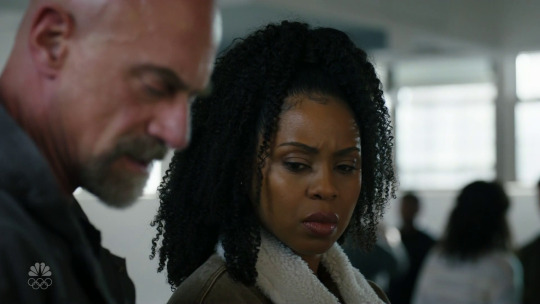
New show runner/executive producer John Shiban (The X-Files) and his writing staff understood their assignment and have definitely delivered. Organized Crime is the most entertaining series in the franchise this season, week-over-week. The storylines are so fleshed out and they don’t drag on as they had since the series started. Shiban has shifted focus to the OC main characters and their backstories as well as expanding on the OC unit in its entirety. We’ve even seen 2 of SVU’s former stars show up (Tamara Tunie, Chief M.E. Melinda Warner / Dann Florek, Donald Cragen) as well as an appearance by Peter Scanavino (ADA Dominick Carisi). We have even been introduced to more of Stabler’s family, his brothers – portrayed by guest stars Dean Norris and Michael Trotter – and while they’ve come in and shook things up for Stabler, one thing I can point out, it’s the first season since OC premiered where I haven’t felt that Elliot Stabler is on a quest for vengeance or retribution of some kind.
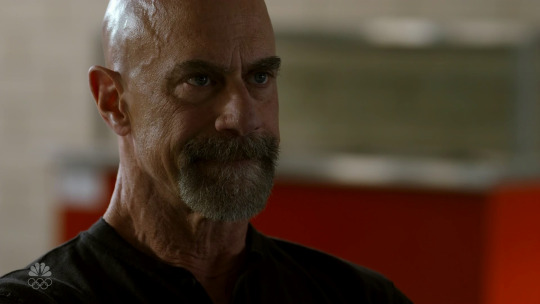
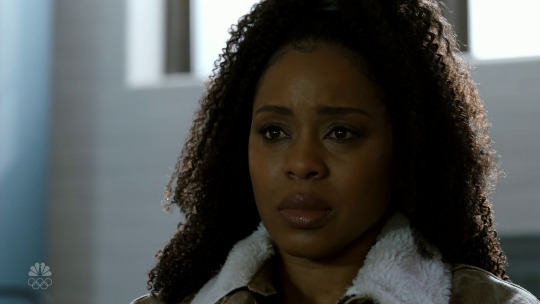
The cast has been firing on all cylinders this season, especially with the episode that just aired last week (“Crossroads”), where one of OC’s new team members went missing and was found to be killed, Stabler having the bury his body as he is undercover with the group that found Detective-in-Training Samir Bashir (guest star Abubakr Ali). This story is still playing out so as of now we don’t fully know who killed him but I’m sure we’re about to find out. Stabler’s younger brother, Joe Jr. may have some involvement as the investigation is about to come full circle. Meanwhile, the scene in question in this episode has Christopher Meloni and Danielle Mone Truitt deliver their most powerful scene together yet in the series and they have delivered quite a few, this one stands out though.
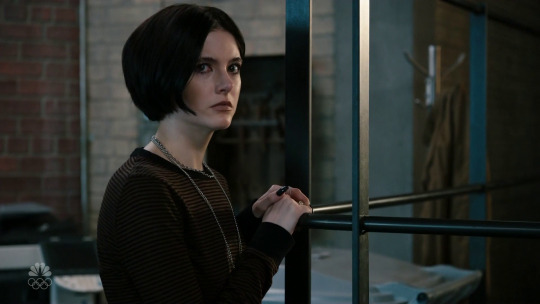

Excellent only begins to describe it, and Organized Crime this season. Organized Crime has yet to be renewed for the 2024-25 TV season.
Law & Order (reboot) – It’s improved, but we still have a ways to go.
There is a lot to be said of the mother ship series, both the original and this reboot. But this reboot has seen a lot in its short time on air, in this short season alone the cast has changed twice already. Jeffrey Donovan (Detective Frank Cosgrove) and the series parted ways weeks before production was set to start and veteran Sam Waterston (District Attorney Jack McCoy) chose to depart before mid-season. Sam Waterston is/will greatly be missed and he leaves behind a full legacy on the show, which he joined in 1994! Meanwhile newcomers Reid Scott (Detective Vincent Riley) and Tony Goldwyn (District Attorney Nicholas Baxter) have been welcomed by fans with open arms. The cast of the reboot no matter which season is very solid and they are all very talented, but their talents often seem crippled.
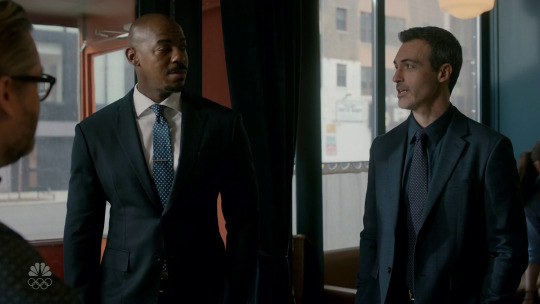
The reboot seems to have an issue fleshing out the characters. Det. Jalen Shaw (Mehcad Brooks) and ADA Sam Maroun (Odelya Halevi) – and add DA Nick Baxter (Goldwyn) to me, week-in and week-out are the unsung heroes as with them we can see depth, we can understand why they make the decisions they make or feel the way they do on certain topics. I’m still on the fence about Riley’s development but he’s definitely has a more solid partnership with Shaw than Cosgrove did, and he certainly is a better character. I think they’ve got a great detective duo here – reminiscent of that of Ed Green (Jesse L. Martin) and Cyrus Lupo (Jeremy Sisto) in season 18. From about the third episode this season on up, there has been an improvement in the writing, I must say in comparison from where the season started. Most of the episodes this season seem to have one singular writer who stands out, Pamela Wechsler, who also serves as executive producer. Girl power!
What can help the reboot:
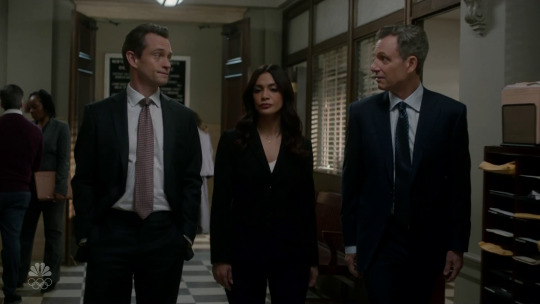
The writers need to get away from talking points and political affiliation when it comes to the characters and even the weekly storylines - looking at you show runner Rick Eid - it makes the characters come off as caricatures and stereotypes. And maybe not directly rip the episodes from the headlines near verbatim. It takes away from it if we already know how it plays out – where is “the Law & Order twist?” They need to deep dive into Vincent Reilly, Nolan Price (Hugh Dancy) and Kate Dixon (Camryn Manheim); we have talented actors on here, give them something that makes us stand up and clap and relate to these characters and stop making them one-dimensional, especially ADA Price. I must say I’ve been enjoying the legal side a bit more with the addition of Goldwyn’s Baxter, his back-and-forth every week with Price has a feel of the original series run, where we see multiple points of views on cases and it doesn’t feel/sound like rhetoric. And speaking of that run, it wouldn’t hurt for them to find ways to invest those old characters in the reboot. Just because Sam has departed doesn’t mean we still don’t want to see old faces or even faces from the other L&O series show up. Elisabeth Rohm (ADA Serena Southerlyn) and Milena Govich (Det. Nina Cassady) have directed episodes! Raul Esparza and Hugh Dancy both starred in Hannibal, I could see former-ADA now Defense Attorney Rafael Barba sitting at the defense table and likely wiping the floor with Price! Tony Goldwyn even wants Mariska Hargitay to direct an episode. Let’s make the mother ship enjoyable to watch again!
It was renewed for a 24th season (4th for the reboot). The mother ship has a second chance at greatness and to continue its legacy on television, not a lot of shows get that. It would be wise that those in charge on mother ship remember that.
SVU – The 25th milestone season ranks as one of the worst.
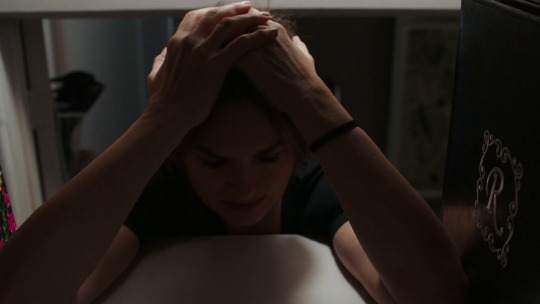
I originally had a two-page long document on this season of SVU alone and I’ve had to shorten it down and it’s still not that short. But if I had to describe the 25th record-breaking season of SVU in 1 word, that word would be “bad.” There are calls on social media for show runner/executive producer David Graziano to be fired from the series. I’m not one to openly call for people to lose their jobs, but clearly there is something wrong and the downward spiral of the ratings mixed with bad press for SVU episodes this season is showing that. Nothing about season 25 jumps out as milestone season and there are only a handful of episodes as of now, that I would consider episodes worth going back to watch again: “Tunnel Blind”, “Duty to Report”, “Probability of Doom”, and “Children of Wolves” which was directed by Mariska Hargitay.
It’s the writing and direction of this season, period. There is no other reason or excuse that flies. There is clearly no investment from the management level behind the scenes at SVU in this milestone season being the best it could have been. The Maddie storyline overtook the season and its resolution didn’t exactly hit the mark either. Where is the retrospective? Why haven’t we gone over past cases? Seen former victims/survivors (other than 2 minutes worth of Maria from “911”)? Why did Olivia stop seeing Dr. Lindstrom (Bill Irwin)? Where is the ‘healing?’ The guest stars? We haven’t seen any former stars, other than Kelli Giddish (Detective Amanda Rollins), and that proves to me that it was a mistake to fire her in the first place. “Where is the energy? Where is the spatter? This is life-less dreck. A cheap knock-off…” (diehard SVU fans; if you know, you know). But seriously, nothing about this season overall screams “25 years!”
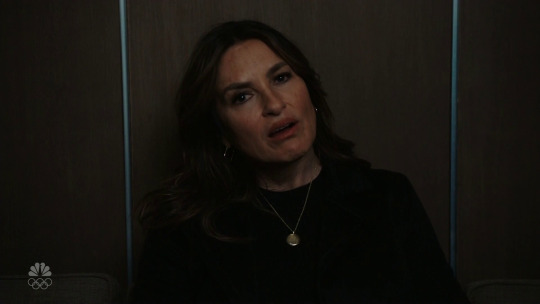
With the season opener, I was sure David Graziano and the writers turned the page on the mess that was most of the entire 24th season of SVU. Turns out I was wrong to think it. It seems to be doubled down. It’s proof that despite his behavior, he’s just not a good fit for SVU. He doesn’t seem to understand how to write for this show and be the voice of who women/people look up to and the voice that victims and survivors need. I honestly think he would serve better on a Criminal Intent reboot or something since he seems to like that aspect of the crimes more so than investigatory and the legal side – Peter Scanavino’s screen time has greatly decreased and well as legal scenes.
What can help SVU:
A lot of damage is done, but it’s not irreversible. The best call is to replace the person at the top if they aren’t going to change themselves, (sorry but not sorry David). The popular eras of SVU are seasons 3-7 and again 13-17 and for good reason; Neal Baer and Warren Leight remain the two people who have seen SVU at their peaks. Going into a record breaking season 26, someone who can understand the intricacies of SVU needs to take the helm and get this show turned around. Focus needs to be on steadying the storylines and fleshing them out in a meaningful way to where they connect and not have crucial bits just disappear into thin air. We need to get SVU’s focus back on uplifting the voices of victims and survivors and their journeys, as well as to delve deep again into the world of the NYPD SVU squad. It’s not just about “rape case of the week” the actual SVU deals with kidnappings, crimes against the children, the disabled/elderly, working in conjunction with the Hate Crimes unit/federal govt., trafficking and more, let’s get the variety back in the crimes – and let’s stop showing the crime taking place on screen and in graphic manner. The crime scene analysis, forensics, court scenes and legalese needs to be put back into this series, I’ve honestly felt it decrease even before S24 as far back as some S22.
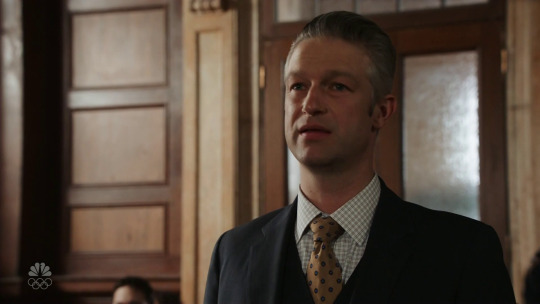
We need to see Carisi navigate through these cases and the back-and-forth with the defense as well as in his own bureau. We’ve yet to see Carisi interact with the district attorney (Jack McCoy, Sam Waterston – now Nick Baxter, Tony Goldwyn) much like his preceding ADAs. Benson’s character needs to go back to therapy and deal with her issues head on (Lindstrom, Bill Irwin), she had done that up until EDMR in season 24 became her new way and it’s not working for her, since the writers seem to use it now as a crutch to say “she’s healing” but then turn around and have her do things to suggest otherwise. Benson also needs to be written as a leader and delegator more so than taking every case away from her “squad” and solving them personally. Actually from a story standpoint it would be great to see Benson face repercussions for continually doing this, in the real world that would have consequences as how can she personally investigate cases and run the unit?
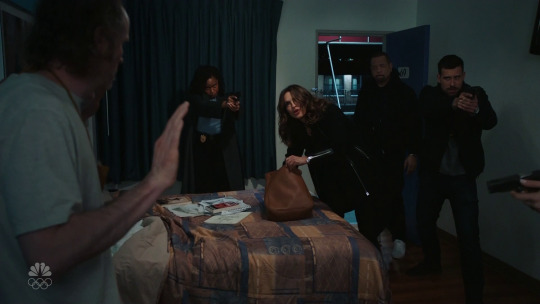
And with the unit, their stories need to be dissected more. Velasco (Octavio Pisano) in particular, he had an edge in season 23 as the new guy that might be a snitch for the Chief of Detectives (McGrath, Terry Serpico) but in season 24 they pushed this character into a corner with liking Detective Grace Muncy (Molly Burnett, who departed last season) and the Chilly storyline last season and can’t seem to get him out of that corner. Velasco comes off as “just there” much in the way Fin (ICE T) is starting to. And where is Phoebe (Jennifer Esposito)? Detective Bruno and Captain (to-Detective or Chief?) Curry (Kevin Kane and Aime Donna Kelly) are pretty much holding down the squad and are actually the more I look to, to solve the cases and they are the only ones peaking my interest.
SVU is heading to record-breaking season 26, if they want to reach their goal of stopping at 30. Dick Wolf, NBC and those behind the scenes need to get serious about it if that is what they really want. Otherwise, you’re about to have long-time viewers and new viewers alike turning away. Despite what people believe about ever-lasting loyalty, it does have an end date.
What do you think? Do you agree or disagree? Feel free to respond!
#Law & Order#Law & Order: SVU#SVU#Law & Order: Organized Crime#Organized Crime#OC#L&O#NBC#Mariska Hargitay#Hugh Dancy#Tony Goldwyn#Christopher Meloni#Peter Scanavino#Kelli Giddish#Olivia Benson#Sam Waterston#Amanda Rollins#Dick Wolf#Mehcad Brooks#danielle moné truitt#odelya halevi#law & order: special victims unit#David Graziano#Rick Eid
17 notes
·
View notes